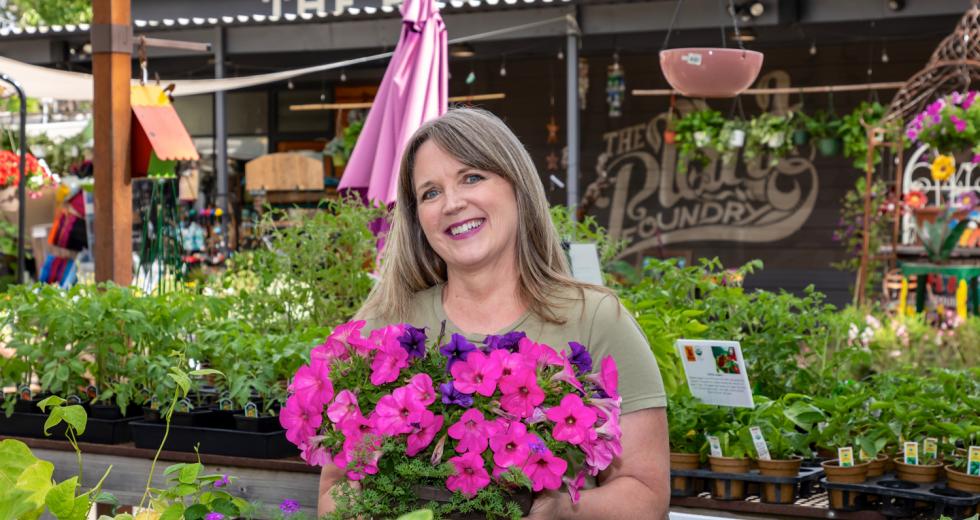Supervisor Grace Amico starts the morning by watering plants at
The Plant Foundry in Sacramento. (Photos by Joan Cusick)
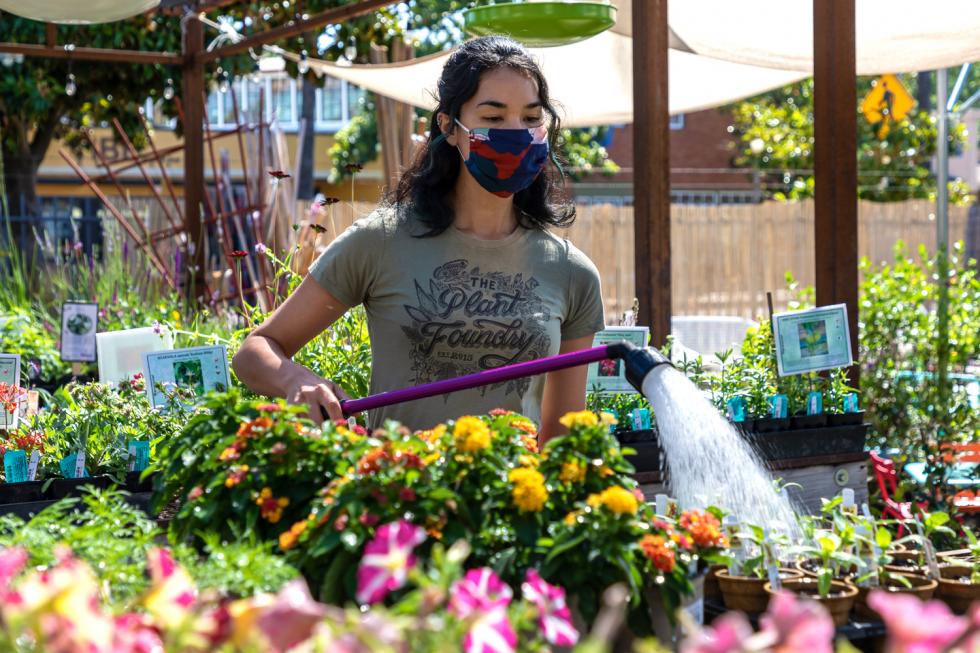
Angela Pratt was ready to close her gardening shop during the COVID-19 crisis until The Plant Foundry was deemed an essential business by state and county guidelines. Since then, Pratt says a renewed interest in home gardening has resulted in a steady stream of customers at the open-air shop in Sacramento’s Oak Park neighborhood, which opened in 2015.
Comstock’s recently spoke with Pratt about how she turned a negative into a positive by changing business practices to better serve customers.
How has COVID-19 affected your business?
When the pandemic first got serious, we really thought we would have to close, and we didn’t know for how long. It just looked really scary and serious. Soon after that, we found out we were deemed an essential business because so much of our inventory is food related. We were just heading into the spring season when this happened. The spring season, to a nursery, is our busiest season. That’s when we make most of our money for the entire year. So we’re used to people being lined up out the door and sometimes down the street a little. And we were very grateful to find out that we were able to stay open.
Customers Gabrielle Salazar (right) and Robert Watson pick a
pepper during a trip to The Plant Foundry.
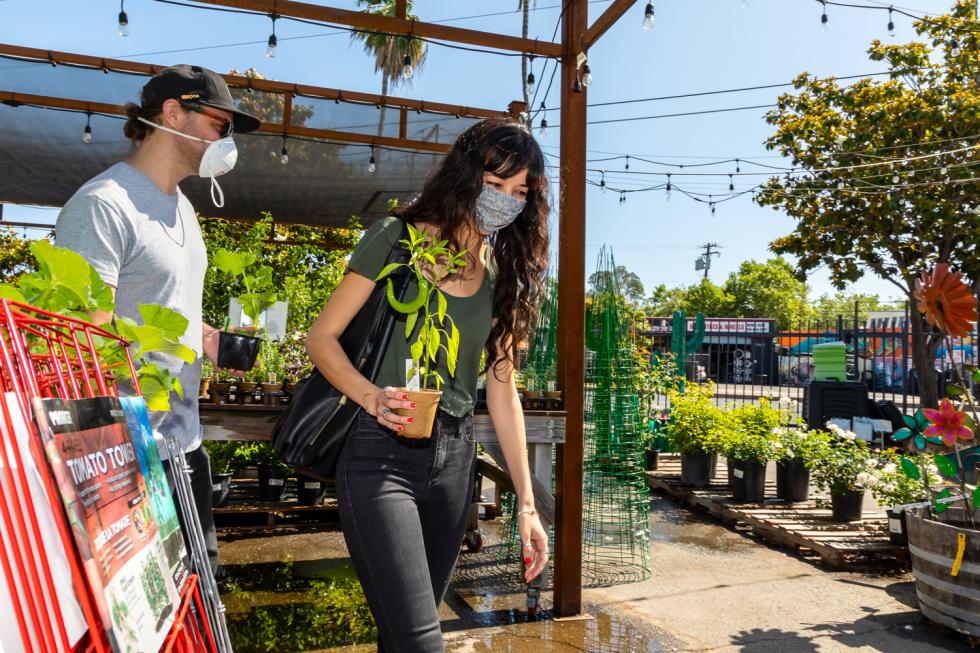
What precautions did you decide to take?
We were terrified about the virus, and we felt very strongly that if we were to remain open, we needed to have strict COVID-19 safety protocols in place. So our crew and our customers have a 6-foot distancing policy, and we had to figure out a way to have contactless deliveries from our vendors and our growers. So far, that’s been working really well. We haven’t had anybody get sick, and we’ve been able to keep the business going and keep our crew (of eight employees) employed. We’re also limiting the number of customers that can come in to only three at a time. In order to make up for that, we implemented curbside pickups, deliveries to adjacent ZIP codes and phone orders.
Crew members Grace Amico (left) and Rose Ellis stock new
inventory.
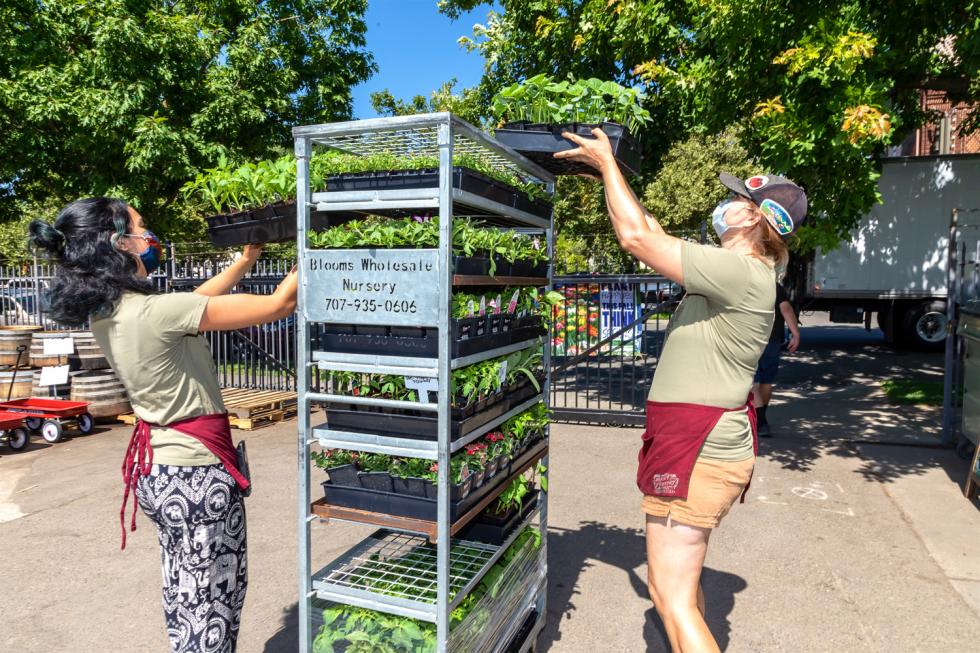
Have the phone orders helped your business?
We have two phone lines, and our phones are ringing off the hook. As soon as this happened, I also had this really strong feeling that now was the time to jump into online sales. … We have almost 10,000 items in our inventory, and I’m up to about 1,300 (in our web store) right now.
Have you encountered other issues?
We’re doing our best to get products to our customers, but we’ve run into supply issues. Sweetwater Nursery (in Sonoma County), which is our certified-organic herb and veggie supplier, actually shut down right when all this happened. So we were looking at having a very, very small tomato supply — tomatoes and peppers and beans and corn and everything that everybody wants to plant right now. But we were able to get a couple of our other growers to fill in, and they’ve definitely stepped up their production. Between Blooms (Wholesale Nursery in Sonoma County) … and Park Greenhouse (in San Joaquin County), they took care of us. And E.B. Stone (in Solano County) has been supplying us with potting soils and compost and planting mixes. They’ve run into some supply issues too, but we just restock as quickly as we can.
Radio Flyer red wagons are used to haul plants around the
property and to make curbside deliveries.
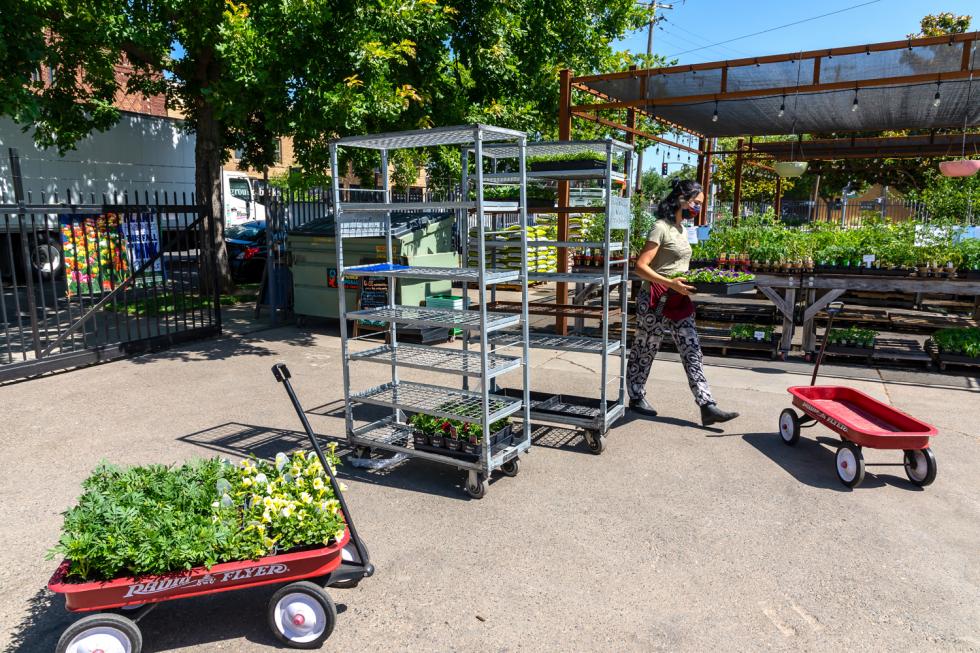
What have been your biggest sellers?
When this first happened, it was all about edibles. And that’s anything from fruit trees to potatoes to veggie starts and herb starts. Soils have been flying out the door and so have seeds. We sold out of potatoes for the first time ever, which was surprising, because usually people are like, “Oh, potato. What do you do with that? How do you plant that?” But we sold out, and we still had people asking for potatoes. So it’s just the market is different, the people’s buying habits are different.
Are you seeing a renewed interest in gardening?
Yes, it’s unbelievable how many people — young and old, seasoned gardeners and beginning gardeners — want to grow their own food. I understand the impulse. We’re faced with a pandemic. There are a lot of unknowns, and we’ve seen food shortages in the grocery stores. And it’s very comforting to be able to grow your own food, to know that you’ve got tomatoes and beans and watermelon in your backyard. It’s just comforting. We’re also spending more time in our backyards. Everything edible is selling like crazy.
Now that the peak season for vegetable planting has passed, The
Plant Foundry owner Angela Pratt says, “House plants are ticking
up again.”
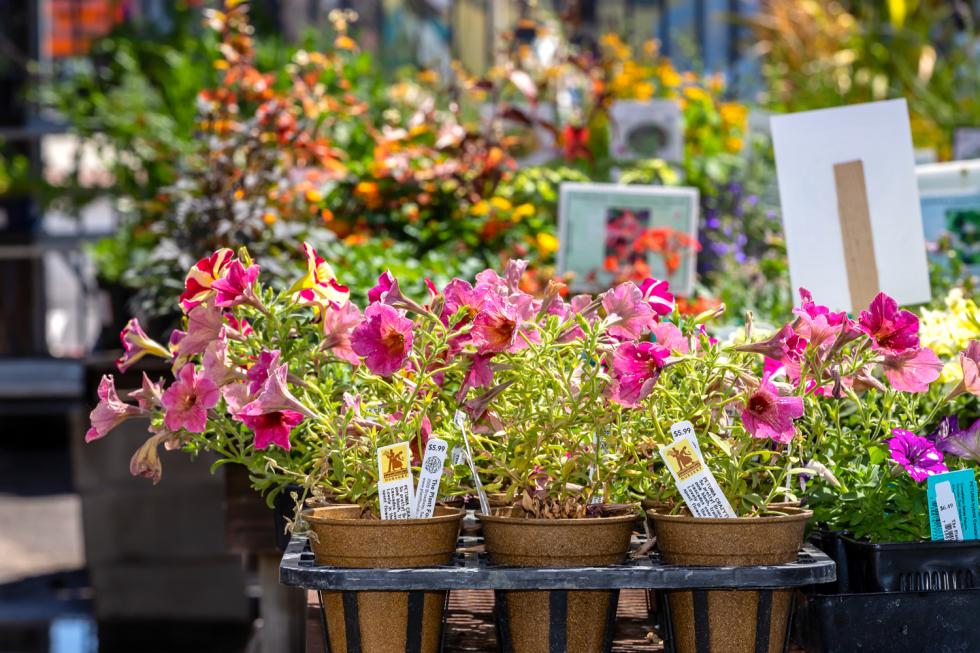
How long do you plan to continue your pandemic protocols?
We’re anticipating that this is going to be our business practice until there’s a vaccine or a better treatment for the coronavirus. With the relaxation of regulations for local businesses, we are seeing fewer customers wearing masks and people standing closer together. So we’ve actually alerted our crew that we’re going to continue with the 6-foot distancing and all of our safety protocols. We don’t want to relax what we’re doing because we want to be safe.
–
Stay up to date on the effects of the coronavirus on people and business in the Capital Region: Subscribe to the Comstock’s newsletter today.
Recommended For You
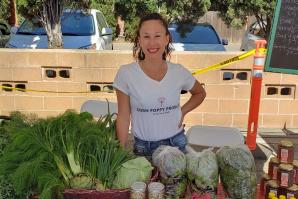
A One-Woman Urban Farm
The owner of Corn Poppy Produce in Stockton talks about building her urban farm business
Jessica Bryant, a former personal trainer who was raised on a cattle ranch, started Corn Poppy Produce in 2019 to promote healthier living in the Stockton community.
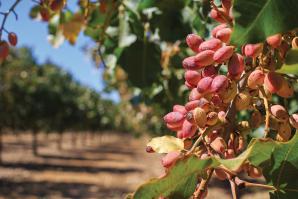
Nut of the Future?
With droughts inevitable, more farmers are switching from almonds to pistachios, but not everyone is happy about it
Almond trees and grapevines will die if deprived of irrigation for a year or less in a dry place like the San Joaquin Valley, but pistachios can survive for years with almost no water. That means, in crisis-level droughts, the trees might persist where virtually all other crops die.
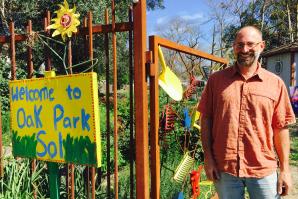
Oak Park Sol Brings Nature Back to City Dwellers
New urban land trust builds community gardens, holds cooking classes
Oak Park’s Broadway throbs as bass bumps from one car and another’s engine belches. Someone honks their horn. Other cars buzz by well above the speed limit. This is urban living. But it doesn’t have to be. Thanks to Oak Park Sol, a newly-formed nonprofit serving as an urban land trust, this neighborhood is bringing nature back to its city-dwelling folks.
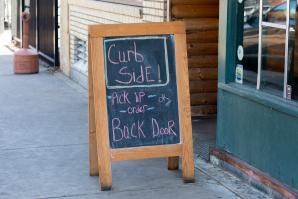
Crawling Back Into Business During a Crisis
Our executive editor explores a city sheltering in place through a socially distant curbside crawl — while a protest against the shelter-in-place order roils at the Capitol.



